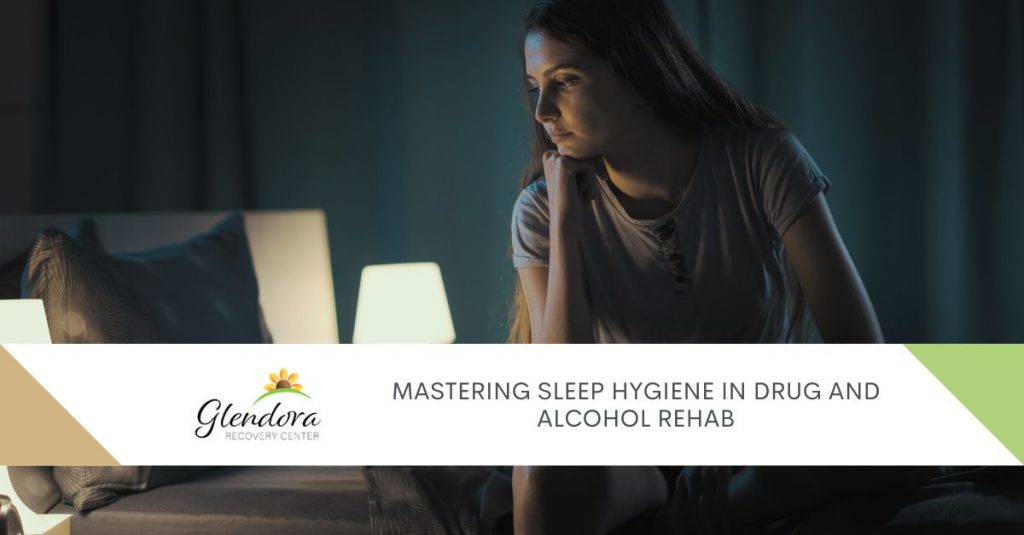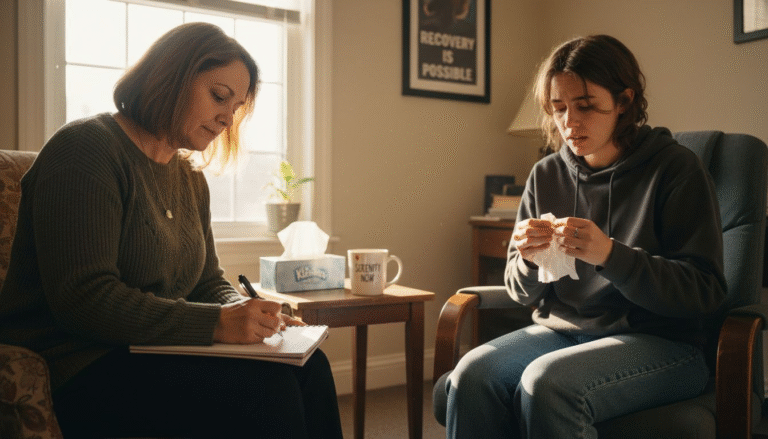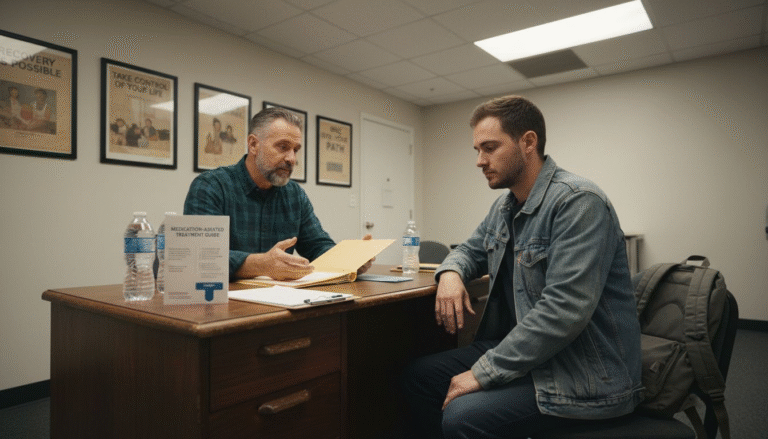Sleep is not a luxury on the road to recovery, it is an essential component of good health. Anyone starting a drug and alcohol rehab program is aware of the great influence restorative sleep has on the outcome of their recovery. This article explores the significance of sleep in the healing process and provides guidance on how people may improve their sleep hygiene to accelerate their recuperation. At Glendora Recovery Center, we recognize the need of physical and mental relaxation to beat addiction and start a better life.
Understanding Sleep Disorders and Addiction
The Connection Between Sleep and Substance Abuse: Addiction and sleep problems frequently coexist, posing a difficult cycle that may hinder rehabilitation. Many drugs, such as alcohol, opioids, and stimulants, can seriously interfere with regular sleep cycles, resulting in problems like insomnia or disrupted REM sleep. The first step in tackling these impacts is understanding them.
Examining how unique each sleep disruption is in the context of addiction is vital. Treatment must be tailored to the individual since every person’s experience with substance misuse and how it affects sleep is different. Taking into account aspects such as length, quality, and patterns of sleep, drug and alcohol treatment programs need to evaluate and treat sleep as a fundamental part of healing. A restful night’s sleep is a fundamental component of a productive day in treatment, and Glendora Recovery Center recognizes this by customizing sleep-related therapies to help each person’s road to recovery.
The Impact on Recovery
Tiredness is not the only effect of inadequate sleep. It touches on everything from mood regulation to cognitive function, directly affecting an individual’s ability to participate and progress in drug and alcohol rehab programs. For those who want to regain their health and well-being, understanding the symptoms of sleep disturbances and how they are related to addiction is crucial.
The Insomnia-Recovery Cycle
The delicate stages of sleep that are essential for both physical and mental recovery can be severely disrupted by substance misuse. Drugs and alcohol can alter the architecture of sleep, perpetuating the cycle of insomnia, and increasing the difficulty of recovering from these conditions.
Breaking the Cycle
A comprehensive strategy is needed to break the insomnia-recovery cycle, beginning with identifying and treating the underlying causes. We’ll talk about how to stop this pattern once we get to sleep hygiene, focusing on how important it is to have regular sleep schedules and restful surroundings.
Basics of Good Sleep Practices
Sleep hygiene consists of practices and habits that are conducive to sleeping well regularly. This section will offer practical guidance on creating a sleep-friendly atmosphere, creating nighttime routines, and controlling habits that enhance the quality of your sleep.
Education Plays A Pivotal Role In Mastering Sleep Hygiene
People may make more educated decisions about their routines and surroundings if they are aware of the science underpinning sleep, which includes the significance of circadian rhythms and the effects of various drugs on sleep architecture. The educational component is emphasized by Glendora Recovery Center, which offers resources and tools that clarify the psychological and physiological components of sleep.
People become active participants in their sleep quality improvement and, consequently, in their whole healing process when they are armed with information, which cultivates a sense of control and dedication to implementing sleep hygiene measures.
Customized Approaches for Rehab
Sleep hygiene becomes even more complicated in the setting of drug and alcohol rehab. Our team will provide tailored tactics to help people in recovery sleep better, ranging from cutting back on coffee and screen time to adding regular exercise and relaxation techniques.
Approaching Sleep Problems with Glendora
Glendora Recovery Center takes sleep issues seriously, integrating sleep health into our comprehensive rehab programs. Discover how our multidisciplinary approach treats sleep issues, with diagnosis and therapy serving as a vital part of our recovery plan.
Our holistic rehab approach is about treating the whole person, not just the addiction. This includes resolving sleep-related problems that may affect recovery. We’ll talk about how our team ensures that each person’s recovery plan includes healthy sleep practices so that a successful rehabilitation process is supported by enough sleep.
The Quiet Side Of Recovery
Achieving optimal sleep hygiene involves more than simply getting more hours of sleep; it also involves improving overall quality of life and supporting the healing process. The need for good sleep hygiene is paramount for those in drug and alcohol rehab to prioritize getting enough sleep as a necessary component of their recovery process. At Glendora Recovery Center, we provide individualized treatment that takes into account sleep health as part of our commitment to helping our clients at every stage of their recovery.
Please get in contact if you’d like to start your recovery journey with us or if you have any questions about our treatment plans or how we handle sleep problems. Use the form on our website or give us a call. Let us collaborate to create a future in which each night will provide a restful sleep and each dawn will bring a resurgence of optimism.



